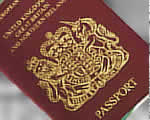 Go to main content
Go to main content
Archive Website of the UK government
Please note that this website has a UK government accesskeys system.
Main menu
Page menu
Government, citizens and rights

The European Union

The European Union (EU) is a partnership of 27 democratic countries, working together for the benefit of all their citizens. It aims to promote social and economic progress among its members, common foreign and security positions, police and judicial co-operation in criminal matters, and European citizenship.
Member states
The 27 countries in the EU are listed below, by the year they joined:
- 1958 - Belgium, France, (West) Germany, Italy, Luxembourg, Netherlands
- 1973 - Denmark, Ireland, UK
- 1981 - Greece
- 1986 - Portugal, Spain
- 1995 - Austria, Finland, Sweden
- 2004 - Cyprus, Czech Republic, Estonia, Hungary, Latvia, Lithuania, Malta, Poland, Slovakia, Slovenia
- 2007 - Romania, Bulgaria
Croatia, Macedonia and Turkey are official candidates to join the EU.
The Council of the European Union
The Council of the European Union - informally called the Council of Ministers - is the main decision-making body, which approves European laws (jointly with the European Parliament). The Presidency of the Council rotates every six months from one member state to the next.
Meetings are attended by the relevant minister from each country, depending on the subject. For example, when health matters are being discussed, the UK's Secretary of State for Health attends, with their European counterparts.
The Council can take decisions either by simple majority, by qualified majority, or unanimously on the most important issues. In most cases, the Council uses qualified majority voting, a weighted system which means that each member state has a certain number of votes reflecting its size and population. A majority of the member states must be in favour, as well as a minimum number of overall votes.
The European Council
The European Council is made up of the presidents or prime ministers of each member state, accompanied by their foreign ministers, and the President of the European Commission. They meet up to four times a year in 'European summits' to set the EU's overall agenda and priorities. The meetings are chaired by whichever country holds the EU Presidency.
The European Commission
The European Commission is the executive body, similar to the UK civil service. It implements the agenda set by the European Council, by drafting new laws and ensuring that member states put them into effect.
Every member country nominates one Commissioner, who is responsible for a specific policy area, for example, education, transport or agriculture. The Commissioners are entirely independent of their countries and serve the EU as a whole.
The European Parliament
The European Parliament is made up of MEPs (Members of the European Parliament) elected by the people of EU countries. It approves laws jointly with the Council of Ministers.
The European Courts
Each member state sends a judge to the European Court of Justice in Luxembourg. The court ensures that laws passed at a European level are applied and interpreted correctly. In certain circumstances, individuals can also bring proceedings against EU institutions.
The Court of Auditors also has one member from each member state. It reviews the accounts of the European Union, to verify that the funds are used legally, economically, efficiently and effectively, and for the intended purpose.
The UK in the European Union
As a member of the European Union, the UK is bound by various legislation and policies. These are based on a series of treaties since the 1950s, which set out the EU's powers and how it can use them.
UK government ministers take part in the discussions and decision-making, and the final decision is taken collectively by all the member states. You can find more information about Britain's role in the European Union on the website below.
The United Kingdom Permanent Representation to the European Union (UKRep) represents the UK's interests in the EU. Based in Brussels, UKRep conducts most of the negotiations and lobbying on behalf of the UK government. Following UK devolution, offices were opened in Brussels to promote the interests of Scotland, Wales and Northern Ireland, working closely with UKRep.
The EU Lisbon Treaty
The European summit in June 2007 abandoned the idea of a European constitution, which had been rejected by voters in France and the Netherlands. It was replaced with a new treaty that will make the changes needed for an EU of 27 to work more effectively.
The Lisbon Treaty was signed by leaders of the EU's member states in December 2007 in Lisbon, the capital of Portugal.
Before it can come into effect, the final text of the treaty will have to be approved by all EU countries, following their own constitutional procedures. In the UK, all treaties are submitted to Parliament, which has the right to examine and debate them in detail.
 Facebook
Facebook Twitter
Twitter StumbleUpon
StumbleUpon Delicious
Delicious Reddit
Reddit
